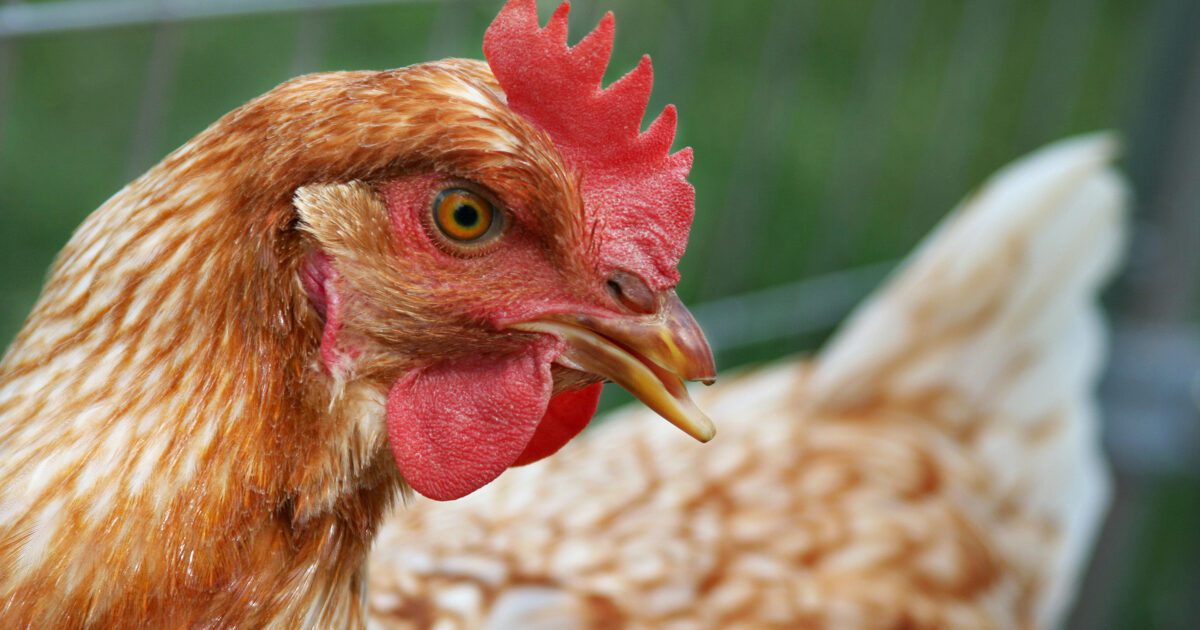This is something to keep on your radar.
It’s undeniable the global elites will attempt another scamdemic on the world population.
What pathogen will they fearmonger for the next scamdemic?
That’s the key question!
WeLoveTrump has reported on Marburg Virus on several occasions.
Another potential candidate for the next global scamdemic is H5N1 (avian flu).
The United States reported its first case of avian flu in Colorado last year.
Unsurprisingly, the U.S. government applied for a patent for a new type of "DNA vaccine" for avian flu.
Now, China is reporting a human case of avian flu.
The World Health Organization confirmed the case.
Will the globalists use this to push the next scamdemic?
It's unclear.
Here are the latest reports:
China has reported a new human #H5N1 avian flu case, marking the second case in recent months, a @WHO official confirmed to @CIDRAP today:https://t.co/RMcLQr03Hb
— Lauren Pelley (@LaurenPelley) March 2, 2023
China reports new #H5N1 avian flu case
A WHO spokesman says China informed the WHO about the #AvianFlu case, which involves a 53-year-old woman, on Feb 24https://t.co/H1zk53qrws pic.twitter.com/YJXj7TNpC0
— CIDRAP (@CIDRAP) March 2, 2023
China has reported a new human H5N1 avian flu case, the WHO has confirmed, and sequencing suggests the woman was infected with the 2.3.4.4b clade which is currently circulating widely in birds: https://t.co/ZsTb72zhiG
— Sarah Newey (@sneweyy) March 3, 2023
From CIDRAP:
China has reported a new human H5N1 avian flu case, marking the second case in recent months, an official with the World Health Organization (WHO) confirmed today.
Daniel Epstein, with the WHO's news media team, said China informed the WHO about the case on Feb 24. The patient is a 53-year-old woman from Jiangsu province who has a history of contact with poultry. The woman's symptoms began on Jan 31, and she was hospitalized on Feb 4.
Genetic sequencing suggests that she was infected with the 2.3.4.4b H5N1 clade, which is currently circulating widely in birds, Epstein said. "Since 2020, an increased number of avian influenza outbreaks have been reported in wild birds and poultry globally, and we can expect additional sporadic human cases."
There are also reports of avian flu in Cambodia in recent days.
Cambodian authorities reported an 11-year-old girl died after contracting H5N1 and that her father also had avian flu.
WHO says avian flu cases in humans ‘worrying’ after girl’s death in Cambodia https://t.co/WTFl7LEEQ5
— The Guardian (@guardian) February 24, 2023
From The Guardian:
The discovery of two cases of bird flu within the same family in Cambodia has highlighted the concern over potential human-to-human spread of the virus, although experts have stressed the risk remains low.
On Thursday, Cambodian authorities reported an 11-year-old girl from Prey Veng province had died from H5N1, with subsequent testing of 12 of her contacts revealing that her father also had the virus.
However, it remains unclear whether the two cases were down to human-to-human transmission, or the result of both father and daughter having had close contact with animals infected with H5N1.
The World Health Organization said on Friday that increasing reports of bird flu in humans are “worrying”.
The CDC also commented on the developments in Cambodia:
This update provides results of a preliminary assessment of the H5N1 viruses identified in two human infections detected in Cambodia in 2023 based on their genetic sequences and gives an update on the epidemiological investigation.
On February 26, 2023, the Institut Pasteur du Cambodge, in collaboration with the Cambodian Ministry of Health, shared the full genetic sequence of the H5N1 virus recovered from the patient who died in that country on February 22, 2023. The genetic sequence of the second case was later also shared by the Institut Pasteur du Cambodge. CDC has conducted a preliminary analysis of the genetic sequences of these H5N1 bird flu viruses. They are H5N1 viruses from clade 2.3.2.1c, which are different from the H5N1 viruses now spreading in U.S. wild birds and poultry, which are from clade 2.3.4.4b. These viruses are similar to past 2.3.2.1c viruses detected in that geographic area over recent years. The genetic sequences suggest that an existing clade 2.3.2.1c candidate vaccine virus (CVV), called NIBRG-301 (A/duck/Vietnam/NCVD-1584/2012-like) would offer protection against the viruses identified in Cambodia. Additionally, there were no genetic changes identified that are known to be associated with increased ability to spread to people or reduce susceptibility to influenza antiviral drugs. CDC has requested virus samples from both cases in Cambodia in order to conduct additional laboratory testing/analysis to confirm these and other characteristics of the viruses and to provide a more detailed risk assessment.
CDC continues to support the Ministry of Health, Ministry of Agriculture, Animal, Forestry and Fisheries, and Ministry of Environment, in its ongoing One Health investigation. Evidence to date continues to support the conclusion that these two human infections are the result of two instances of bird-to-human spread. There is still no indication of person-to-person spread associated with these two cases. The investigation has revealed that both patients became sick at about the same time and were likely exposed to sick or dead poultry prior to becoming ill, including being near sick/dead poultry kept in a coop under the house or through butchering, cleaning, and cooking chicken that died. Investigation and containment efforts continue, including monitoring and/or testing of contacts of the two cases for 10 days after their last exposure, along with active surveillance for influenza-like-illness in the village. CDC will provide additional updates as needed.



Join the conversation!
Please share your thoughts about this article below. We value your opinions, and would love to see you add to the discussion!